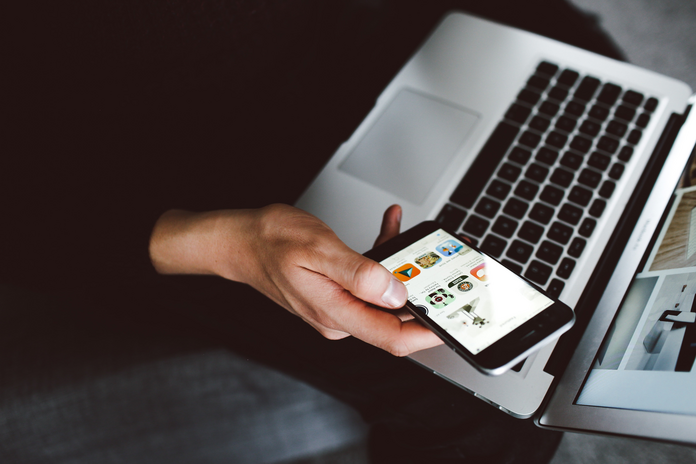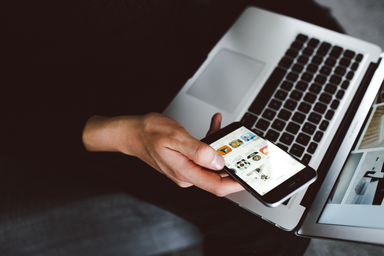“Whoever controls the media, controls the mind.” – Jim Morrison.
I recently underwent a twenty-four-hour media fast for my Comm 100 class and, despite my initial skepticism, I wound up learning not just things about media but also things about myself.
I started this fast at 3:00 am on a Wednesday morning, deluding myself into thinking I would be fully prepared for it, having written down Wednesday’s agenda and planned everything on Tuesday. I even told my parents and friends that I wouldn’t be available that day.
Basically, my goal was to prove a certain modern-day stereotype wrong–the one that claims teenagers cannot live without social media. At 3:00 am sharp I switched off my phone, and true to my intent, I did not switch it on again till 3:30 am on Thursday. However, as I soon discovered, the challenge was far greater than just keeping my phone off.
I chose Wednesday because it’s my day off from classes, so I wouldn’t need an alarm to wake me up, giving myself no excuse to access my phone. As a result, I woke up at 11 am, feeling very content with my first full night’s sleep in a while, and for an inexplicable reason, very happy. I was looking forward to the challenge of a media-free day, the first half of which ran fairly smoothly.
However, when I ventured out of the dorms for the first time that day to get lunch, I hit a few snags. For starters, I paused at the ordering kiosk at Einstein Bagels for a fairly long time, unsure whether using it would constitute breaking the media fast. Although I went to the counter to avoid breaking the fast, when I left the building there was music playing at a table outside, a circumstance that counted as media but was unforeseeable.
Later in the day, in accordance with my preparation from the day before, I went to a room to attend an interest meeting, only to find the room completely empty. As I found out from another person who had made the same mistake as me, the organization had sent out an email letting people know that the meeting had been postponed, something I had no way of knowing.
The rest of my day was relatively media-free with the exception of work for other classes, until later that night when I attended a Her Campus staff meeting–which, of course, used a power-point presentation. Therefore, despite my best efforts, media found it’s way into my day in some form or the other. This caused me to realize that media truly is omnipresent and often unavoidable. Truly, unless you lock yourself in your room and refuse interaction with the outside world, in an environment like the one provided by a college, you run the risk of interaction with media the second you step outside of your room.
The fact that I prepared for the media fast made sense to me at the time because of the extent to which media is ingrained in our daily lives. However, what I realized by the end of the day is how much the fact that I felt the need to be prepared for the fast emphasized how extensively I use media.
I was so worried that I would be unable to access any form of media for 24 hours that the night before, I tried to absorb as much media as I could. I watched a movie, spoke to my parents and played my favorite songs right before I started the fast.
In a way, it was almost as if I were equating media with food, trying to get as much in as possible before I would no longer be able to for a long period of time. This realization was something I discovered in hindsight and was not something I was proud of.
Despite the concerns that fueled my media-binge, interestingly enough, for the twenty four hours that I did not purposely interact with media, I did not miss it. In fact, I was significantly happier throughout the day.
I felt more present, more awake and less drained. Though I regretted not being able to listen to music as I went around doing my daily activities, I was happy to be rid of social media and online interactions for the day. Somehow, it felt as if my in-person interactions were all the more real and meaningful without the presence of screens in the background.
Though this held true for those twenty-four hours, I understand that I would most likely feel differently about the situation if it lasted for a longer duration of time and perhaps begin to crave media.
Another thing that I realized is that throughout the day, I found myself questioning what media was.
Did reading off a menu count? Or writing down notes and reading them later? Media is such a generic umbrella term that we don’t really think about until topics like this force us to pick apart and distinguish between the different communications in our lives, only to realize that the term has a far bigger reach than initially estimated.
Media is immensely powerful. It is our connection to the world in more ways than one. A single post or article can reach millions of people all over the world. It is impactful, it is important, but in many ways it is overwhelming. Media can be toxic, misleading and, at times, addicting. It is therefore necessary, in my opinion, to occasionally take a step back and open an actual window as opposed to another one on our screens. In fact, since the media fast last week, I have found myself more conscious of my online activities and have started making an effort to disconnect from media and reconnect with real life more often. The balance of the perfect amount of consumption of media is a difficult one to strike and varies from person to person, but it is an integral part of life. It increasingly is important to be in control of the media we consume–otherwise, it just might consume us instead.



